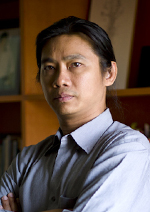Not for the first time in recent years, a Burmese minister finds himself in the hot seat after comments made last month while meeting with local villagers in central Burma.
The offending remarks by Ohn Myint, minister of livestock, fisheries and rural development, were made to residents of a village in Magwe Division, with the Union cabinet member saying he would not hesitate to “slap” those who oppose government policies.
“I can go around and slap everyone’s face … if anyone insults or opposes the government, [I will] hit and lock [people] up … This is what the world has been exercising,” the minister claimed.
The statement—and accompanying comments about the military’s enduring, benevolent legacy—no doubt angered those within earshot, and the minister’s rant later careened about cyberspace as villagers quick on the draw managed to record audio and video of the remarks. Soon social media was abuzz, and an ill-conceived scolding to local residents of a remote Magwe village made its way into the national spotlight—and onto President Thein Sein’s desk.
The incident has also been raised in Parliament amid calls for action to be taken against the minister.
On Monday, a small protest took place in downtown Rangoon, with demonstrators urging the government to dismiss the minister. Clearly in damage-control mode, Thein Sein met with Ohn Myint shortly after news of his comments began to spread. It is now believed that the minister, a former general who is also close to former dictator Snr-Gen Than Shwe, has been asked to go back to village and apologize to the villagers.
The image of a contrite Ohn Myint asking the people for forgiveness would certainly seem in keeping with the practice of an increasingly image-conscious Thein Sein administration.

Unfortunately for the president, this latest outburst adds to a growing case file of former army generals whose foul-mouthed antics—perhaps permissible back in the barracks—have landed them in trouble as ministers in Burma’s now nominally civilian government.
Former Vice President Tin Aung Myint Oo, who abruptly resigned in mid-2012, is also an ex-general who was notoriously fond of foul language. As anyone who has ever seen the American film “Patton” or any of dozens of other war movies knows, this seems to be a popular style of interaction between senior military officers and their rank-and-file subordinates.
But the public’s tolerance of this abusive and belittling “standard practice” is running thin. Since Burma’s opening up, social media and some local publications have played an active role in exposing the true color of the generals who once ran the country with an iron fist, and through their despotic rule remained accountable to no one.
In 2012, Myint Hlaing, the agriculture and irrigation minister, also found himself in hot water when he told impoverished villagers that they should make do with just one meal a day. The formerly influential general’s comment angered many villagers and, as in this latest incident, quickly spread via social media and local news outlets. That same year, the minister had to issue an apology to the country’s parliamentarians after coming under fire for calling them uneducated and thoughtless.
In May 2012, with Burma facing a severe electricity shortage, presidential advisor Ko Ko Hlaing blamed the problem on the people’s inability to properly conserve energy. At a press conference, Ko Ko Hlaing suggested that if people lit candles at home to conserve electricity, “everything will be alright.” Again, a recording of the remarks quickly made the rounds via social media and he too came under fire, with the former colonel and protégé of Thein Sein soon after disappearing from the public eye for a time.
Thein Sein’s government has been framed by skeptics as a mere offshoot of the previous, repressive regime, and Ohn Myint’s high-handed diatribe fuels a rising public sentiment that many of the former generals are, at heart, the same men who had kept the nation under the military boot for decades.
Knowing that their popular standing these days is on shaky ground at best, and with a national election set to take place next year, the government is showing occasional flashes of sensitivity to public criticism. But for the brash former generals that now populate the cabinet, old habits, it seems, die hard.
















